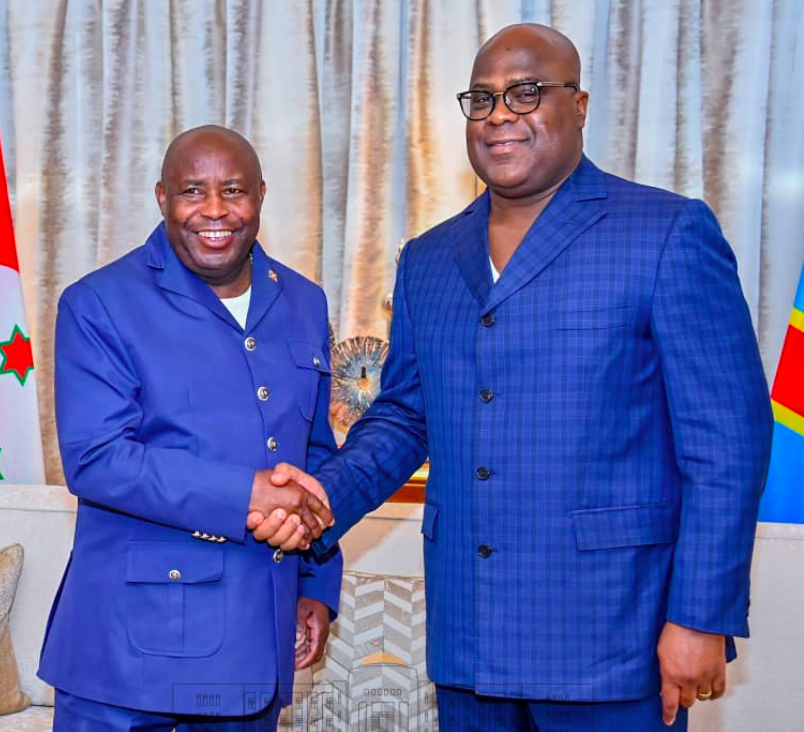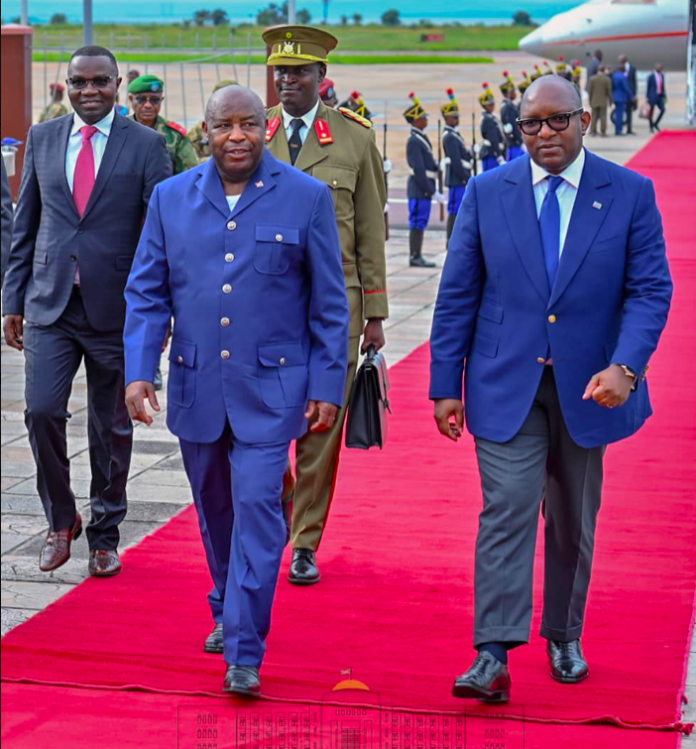On February 13, 2024, the Burundian Presidency announced via the social media platform X that President Evariste Ndayishimiye embarked on a journey to Kinshasa, Democratic Republic of Congo (DRC), for crucial discussions aimed at fostering peace and cooperation in the region. This visit is part of President Ndayishimiye’s responsibilities as the head of the monitoring mechanism for the implementation of the peace, security, and cooperation agreements between the DRC and its neighboring countries. Upon his arrival in Kinshasa, President Ndayishimiye was received by the Prime Minister of the DRC.
The President of Burundi met his counterpart Félix Antoine Tshisekedi Tshilombo at the Presidential Palace of the African Union City on the evening of this Tuesday.
 This diplomatic mission underscores the ongoing efforts to stabilize the Eastern Congo region, which has been troubled by armed conflict, notably involving the M23 rebel group and foreign military interventions. Reports suggest that some forces supporting the DRC government in the conflict against M23 include troops from Burundi, although the Burundian government has not officially confirmed this.
This diplomatic mission underscores the ongoing efforts to stabilize the Eastern Congo region, which has been troubled by armed conflict, notably involving the M23 rebel group and foreign military interventions. Reports suggest that some forces supporting the DRC government in the conflict against M23 include troops from Burundi, although the Burundian government has not officially confirmed this.
President Ndayishimiye’s trip to Kinshasa is not his first; he previously attended the inauguration of DRC President Felix Tshisekedi on January 20, 2024. Observers note that this visit is significant against the backdrop of escalating tensions in Eastern Congo, where the security situation remains volatile, with the potential for a broader regional conflict.
The situation is further complicated by allegations from the United Nations accusing Rwanda of supplying heavy weapons to the M23 rebels, thereby exacerbating the conflict. In response to the crisis, South Africa announced its intention to deploy nearly 3,000 troops to the region, joining forces from Tanzania as part of the Southern African Development Community (SADC) military intervention aimed at supporting the DRC’s armed forces (FARDC). Moreover, the presence of a substantial number of Burundian troops along the border with Rwanda, as confirmed by Burundi’s Defense Minister, highlights the growing military build-up in the area.
Additionally, there are concerns about widespread propaganda activities supporting the M23, particularly in Rwanda, across various platforms, including social media. These developments suggest a complex web of regional dynamics, with multiple actors and interests at play, potentially leading to a significant escalation of conflict involving direct confrontations between national armies, a departure from the more common indirect engagements through proxy forces or political movements.





























































